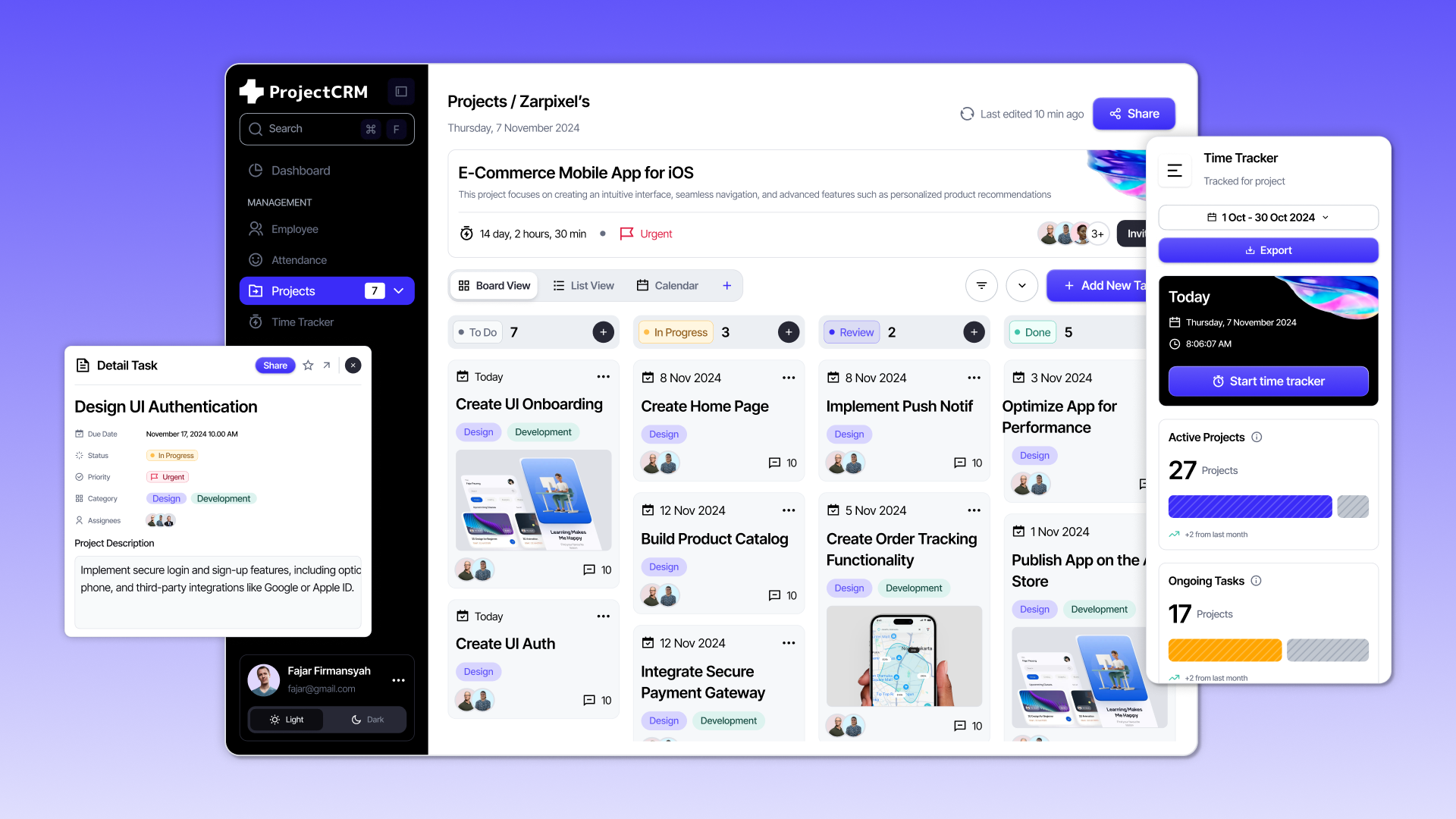
Business in the IT field is a constant balance between innovation, efficiency, and speed of decision-making. How to keep all processes under control without losing flexibility? In the field of IT, CRM is not just a tool, but a strategic solution that automates project, customer, and personnel management. AVADA MEDIA provides services for developing CRM for IT from scratch and scaling existing solutions. Our software products help your business grow faster, more organized and more efficient.
CRM is a system for managing customer relationships. But in the IT services industry, it performs a much wider range of tasks: from automating IT processes to project management and recruiting. The management system for an IT company becomes a center that combines communication, analytics, document management, and task control in a single digital ecosystem.
With high-quality CRM, IT projects move forward without delays, employees are focused on results, and customers receive the best service without unnecessary communication barriers.
Using CRM for project management opens up unique opportunities for a web studio.
CRM system for an IT company
A CRM system in the IT field is not just a tool for customer accounting, but a full-fledged operating platform for automating internal processes and interacting with customers. Let’s take a look at business processes that can be optimized with a custom IT CRM.
In SEO, CRM helps to centrally manage all stages – both within client projects and for the internal needs of an IT company. Automatic SEO website promotion with a management system significantly saves search engine specialists time by performing voluminous monotonous tasks.
CRM system for IT company
A CRM system for IT companies will become a key element of the digital infrastructure for any business related to project management, customer service, and team coordination. The most in need of it:
Developing CRM for projects becomes a necessity when the number of orders of a web studio grows and their management becomes complicated and inefficient. If your team is facing chaos in tasks, a large amount of manual work and duplicate tasks, missed deadlines, and data loss, then it’s time to automate processes. CRM for project management is especially relevant when several teams are involved in the work at the same time, and each project requires a unique approach and constant feedback from the customer.
If a company positions itself as a professional provider of digital products and services, it cannot afford to work without its own CRM system. This is not only a matter of internal efficiency, but also an indicator of maturity and technological culture. For example, it would be strange to promote sophisticated business tools to customers without having the best solutions in your arsenal. Having your own CRM for an IT company is an indicator of deep expertise and readiness to offer really convenient, well-thought-out products that have been tested on your own experience.
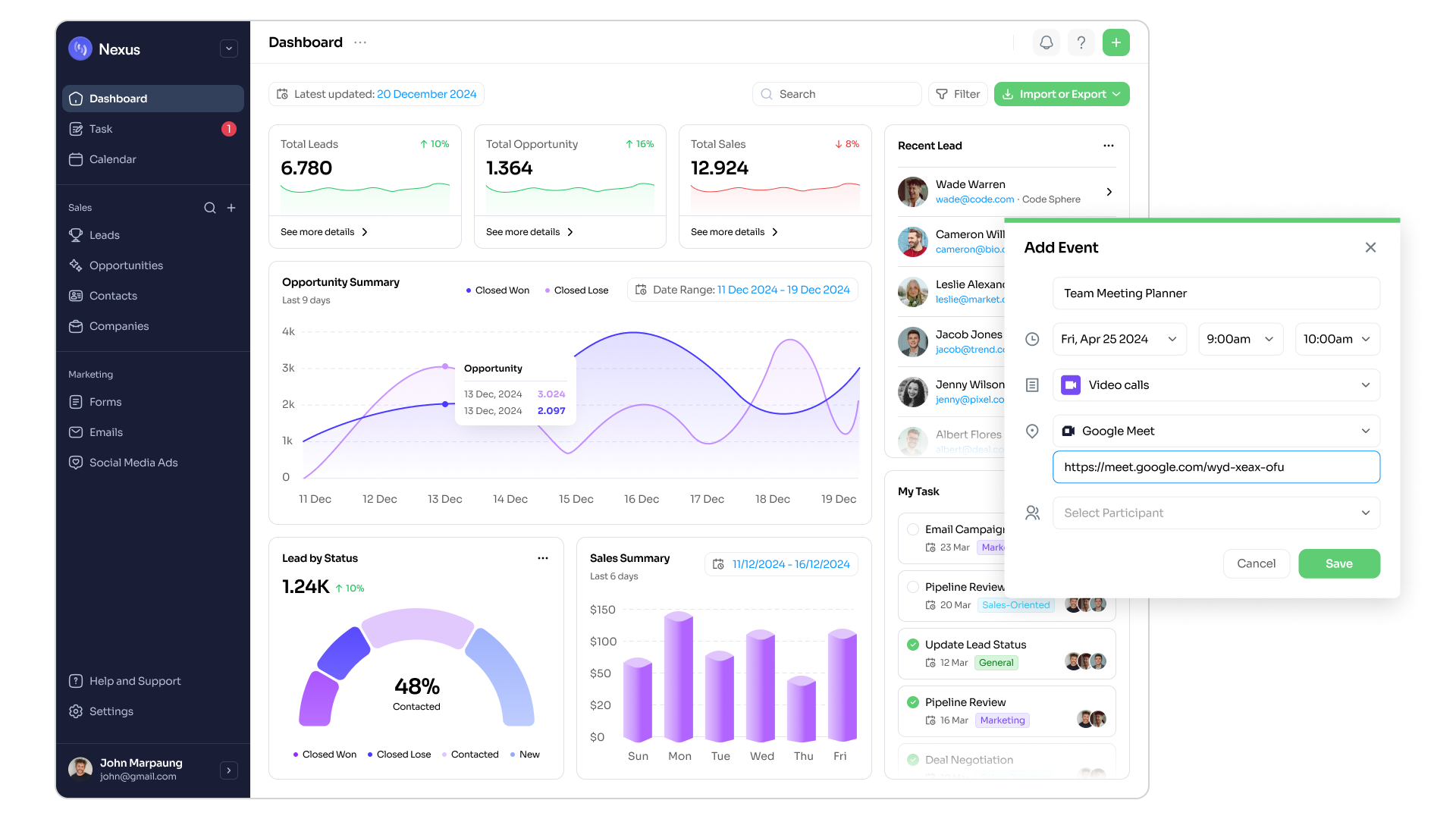
Automating IT processes is a complex process that requires a deep understanding of business specifics and the use of modern technologies.
CRM development for an IT studio begins with an in-depth analysis of project management, sales, customer support, and company goals. Analysts study existing tools and identify critical areas that need automation. As a result, a clear understanding is formed of what functions should be implemented in the system, what integrations and scaling mechanisms will be needed.
Based on the data obtained, a technical specification is developed that contains a description of the system architecture, security requirements, a list of functional modules and their interaction, and a list of integrations. The ToR is the basis for the development of a CRM system for IT and ensures understanding between the customer and the developer, and it determines the timing and cost of the project.
The creation of the logical structure of the IT business management system includes the design of the user and server parts, the selection of databases, and the definition of ways to exchange information between system modules. At the same time, interactive interface prototypes are being developed to visualize the future product and test the user experience (UX) at an early stage. Tools such as Moqups, Figma, and Sketch are used for prototyping. Mockups make it possible to test the future system and get feedback from the customer before development begins.
At this stage, the design of the CRM system’s user interface is developed, which should be convenient, intuitive, and consistent with the corporate identity of the IT studio. They create convenient dashboards, visual elements for quick data analysis, and workspaces for different user roles (developer, manager, client), as well as interactive elements that speed up navigation and increase productivity. Special attention is paid to the adaptation of the system to work on different devices.
This step is dedicated to writing code for the server and client parts of the system. For this purpose, modern technologies are used to ensure the reliability and scalability of the program:
The development is iterative, taking into account CI/CD approaches, which allows you to work on the project and test it in parallel.
A high-quality CRM system for a web studio should be not only functional but also stable. After the development is completed, full testing is carried out – functional, integration, and load testing. This stage allows you to identify and eliminate errors, as well as check the project’s compliance with customer requirements.
After successful testing, the CRM system is deployed on the client’s server or in the cloud infrastructure (CRM SaaS). We synchronize it with existing tools and services, as well as train the team so that all users can work effectively with the program.
The development of a CRM system for an IT company does not end at the implementation stage. IT studios are developing and their needs are changing, so the system must quickly adapt to new requirements. Technical support includes regular updates of the system with the latest technologies, bug fixes, customer support, adding new features, integrating with new services, and adapting the system to the new needs of the IT studio.
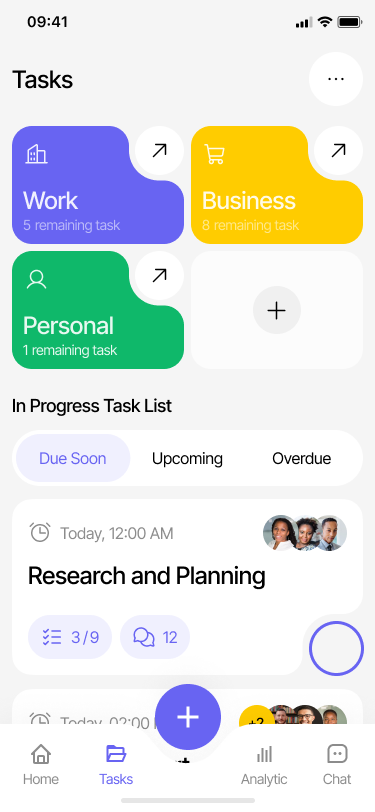
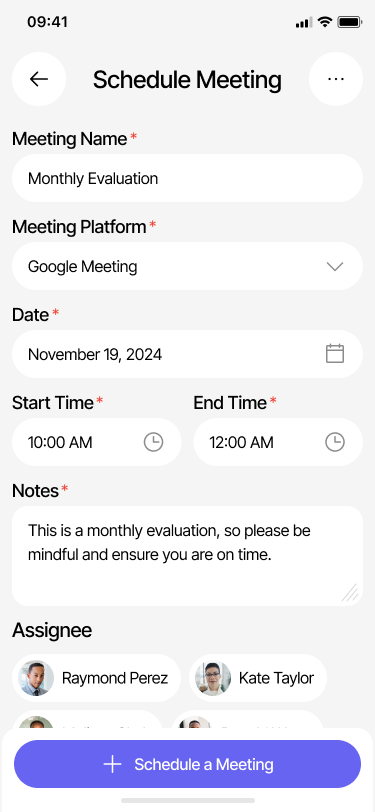
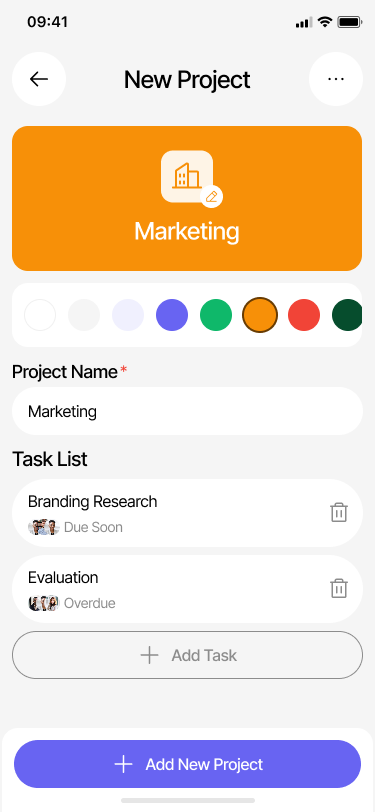
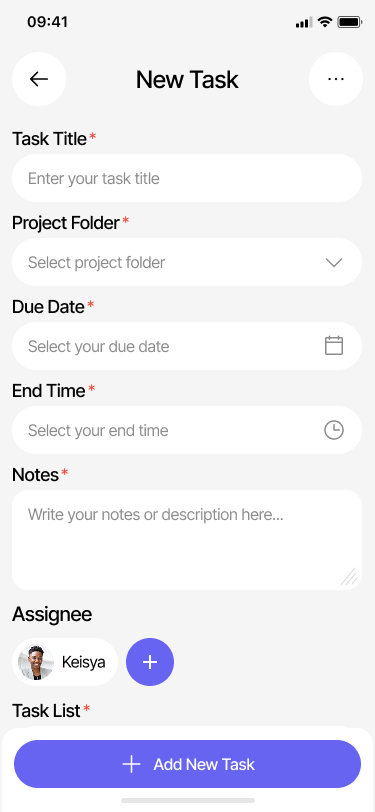
Mobile version of CRM system for IT company
AVADA MEDIA is a team of experts in the field of IT solutions. We can order the development of CRM systems for IT companies – high-tech, scalable and secure, adapted to the needs of digital agencies, web studios and technology companies. We use advanced technologies, including AI, Big Data, and cloud solutions, provide integration with any external services, and guarantee reliable data protection. Our approach allows you to develop a management system that fully meets your business processes and is ready to be transformed to meet new requirements. By choosing AVADA MEDIA, you get not just a software product, but a strategic solution for the growth and development of your IT company.
Is CRM suitable for remote teams?
A CRM system for an IT company supports work in the cloud and access via the Internet. All data is synchronized in real time, so you can manage your team regardless of the location of employees.
Does the program run in the cloud or on the company's server?
You can choose a cloud-based solution (SaaS CRM) for quick access from anywhere in the world or a local installation on the company’s server, providing full control over the data. In both cases, we ensure high speed and reliability of the system.
How long does it take to develop a CRM system?
The development and implementation time depends on the complexity of the project. On average, the process takes 3-4 months or more.
Is it possible to integrate CRM for a web studio with existing tools?
Yes, you can integrate CRM with popular project management tools, messengers, and other services.
How safe is CRM for a web studio?
We use modern data protection standards such as encryption, two-factor authentication, and access control.
How much does automation cost in an IT company?
The price of developing a CRM for an IT department or company depends on the complexity of the project, the number of required functions and integrations.
How can a CRM system help manage remote teams, especially when working with freelancers and contractors from different time zones?
Integration with video conferencing tools and instant messengers simplifies communication, and automatic notifications help take into account time differences.
Can an IT management system help predict risks, for example, in assessing the likelihood of budget overruns?
CRM can analyze data on past projects, find patterns, and predict risks. Based on this data, you can make informed decisions and adjust plans.
Does automation of business IT infrastructure help to manage the company's online reputation?
CRM can be integrated with tools for monitoring reviews and mentions on social networks, as well as analyzing the tone of reviews. This allows you to quickly respond to negative reviews and strengthen the company’s positive image.
How does a CRM system help manage international projects?
A custom CRM can support multilingualism, multicurrency, and take into account the specifics of the legislation of different countries. This makes it possible to work with international projects and helps the company expand its business geography.
How does the program help in recruiting IT specialists?
A customized CRM for IT recruitment automates the recruitment process, simplifies candidate database management, tracks interview stages, and integrates with job platforms. Using CRM for IT recruiting, HR specialists can conduct hiring analytics, automate communication with candidates, and close vacancies faster.
Our works
Contact the experts Have a question?
Developed by AVADA-MEDIA™
The user, filling out an application on the website https://avada-media.ua/ (hereinafter referred to as the Site), agrees to the terms of this Consent for the processing of personal data (hereinafter referred to as the Consent) in accordance with the Law of Ukraine “On the collection of personal data”. Acceptance of the offer of the Consent is the sending of an application from the Site or an order from the Operator by telephone of the Site.
The user gives his consent to the processing of his personal data with the following conditions:
1. This Consent is given to the processing of personal data both without and using automation tools.
2. Consent applies to the following information: name, phone, email.
3. Consent to the processing of personal data is given in order to provide the User with an answer to the application, further conclude and fulfill obligations under the contracts, provide customer support, inform about services that, in the opinion of the Operator, may be of interest to the User, conduct surveys and market research.
4. The User grants the Operator the right to carry out the following actions (operations) with personal data: collection, recording, systematization, accumulation, storage, clarification (updating, changing), use, depersonalization, blocking, deletion and destruction, transfer to third parties, with the consent of the subject of personal data and compliance with measures to protect personal data from unauthorized access.
5. Personal data is processed by the Operator until all necessary procedures are completed. Also, processing can be stopped at the request of the User by e-mail: info@avada-media.com.ua
6. The User confirms that by giving Consent, he acts freely, by his will and in his interest.
7. This Consent is valid indefinitely until the termination of the processing of personal data for the reasons specified in clause 5 of this document.
Send CV
Contact us in any convenient way for you:
+ 38 (097) 036 29 32